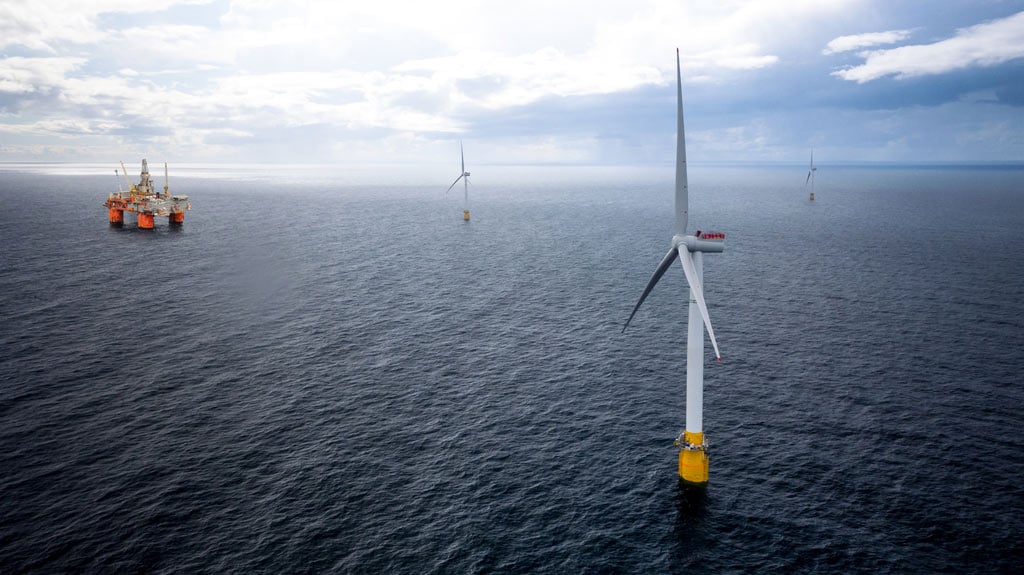Lloyd's Register has been awarded a contract for HMI services to support Equinor's Hywind Tampen, the world's first floating wind farm.

Specialist energy consultancy Lloyd's Register (LR) has been awarded a contract for Human-Machine Interface (HMI) engineering services - part of an integrated scope awarded to Wood by Equinor to support Hywind Tampen, the world's first floating wind farm to power offshore oil and gas platforms.
This project forms part of Equinor's climate ambitions to reduce the absolute greenhouse gas emissions from its operated offshore fields and onshore plants in Norway by 70% by 2040 and to near zero by 2050. By 2030 this implies annual cuts of more than 5 million tonnes, which constitutes around 10% of the country's total CO2 emissions.
As part of this cutting-edge project, LR will provide consultancy design services for integration into the existing onshore wind control room (OCR) for Hywind Tampen, which will be co-located with an existing OCR for Valemon, a normally unmanned offshore installation in the North Sea. The LR team will also provide human factor analysis for the new OCR, as well as existing OCRs for four platforms.
LR has specialised in the field of consultancy services for 20 years. Its specialist human factors consultancy team helps operators create work environments which are safe, user-friendly and built to operate as efficiently as possible. This involves assessing human behaviours and carrying out a detailed breakdown of tasks typically conducted in the work environment, as well as an evaluation of technical systems, identifying information and data users' needs and work place design.
LR has a long history of working in offshore environments, initially in marine, maritime and oil and gas which has expanded to major renewable energy projects in the last 10 years.
Tristan Chapman, SVP Clean Energy and Innovation at Lloyd's Register commented: "The Hywind Tampen project addresses some of the industry's biggest challenges - a key one being the integration of digitisation and decarbonisation. The work we are undertaking, providing design consultancy for the existing OCR and human factor analysis, will help support Equinor's wider decarbonisation agenda. By developing unmanned solutions for power generation, the industry can start to make some real cost savings."
Working on this project with Wood and Equinor builds on LR's long track record in technology assurance, particularly around the verification of innovative solutions.





